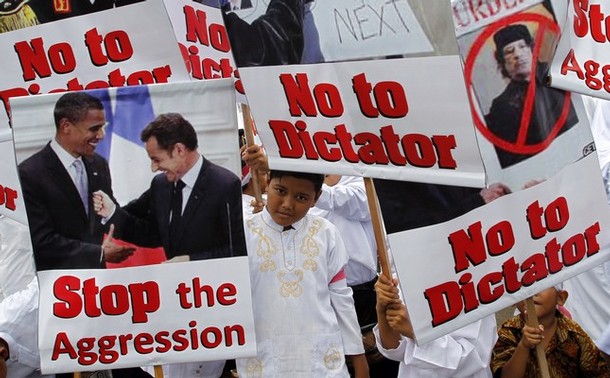
From the Editors of the Financial Times: The west intervened to avert a bloodbath in Benghazi. That was necessary and right. It should now use the breathing space afforded by its initial military successes, as well as the formal involvement of Nato, to define the mission better. Tuesday’s conference in London provides an opportunity to do so.
Regime change is not part of the coalition’s mandate, but it is clear that there will not be lasting peace in Libya while Col Gaddafi remains in Tripoli. The allies cannot do the opposition’s fighting for it, but they should do everything to further tighten the pressure on the dictator. His regime should be isolated and economically strangled. His henchmen should be encouraged to detach themselves, and reminded that they will be held accountable if they do not. …
To achieve this, Nato and its allies should not shrink from giving more active military support to the opposition – respecting the UN authorisation of “all necessary measures” to protect civilian-populated areas.
Equally important is the political mission. Nato should swiftly identify and nurture a national opposition and plot the path for a post-conflict transition to democracy, probably under UN auspices. The only credible candidate is the interim national council based in Benghazi. Nato should ensure that this is not an eastern clique, but a body that represents all segments of the population. (photo: Reuters)
Image: reuters%203%2028%2011%20Jakarta%20posters.jpg
